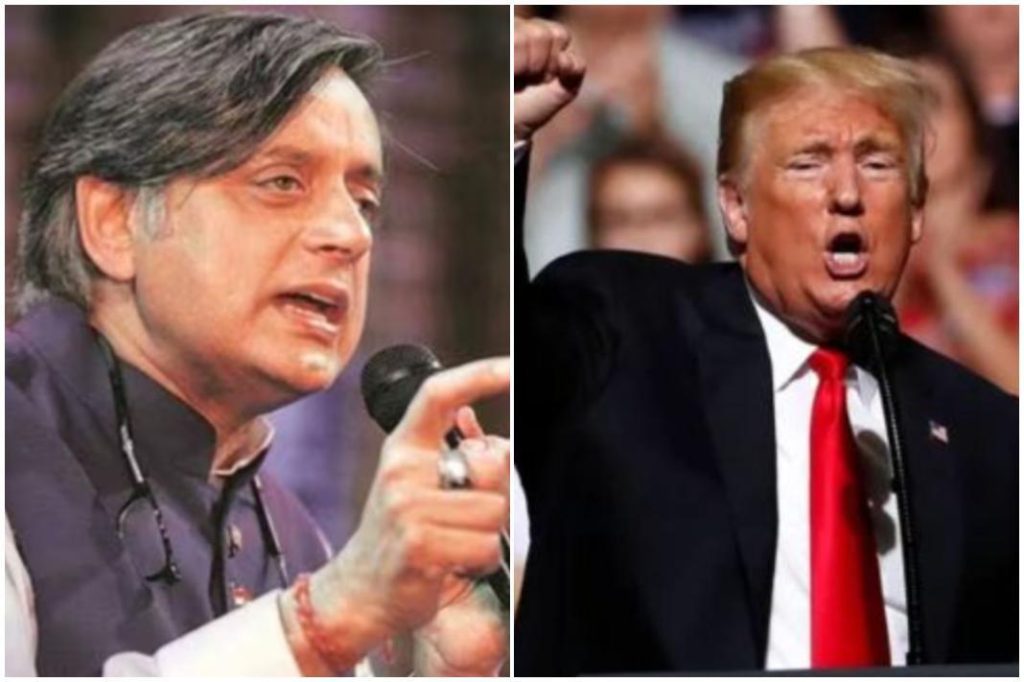
Shashi Tharoor Shares 4 Reasons Why Trump’s Ceasefire Post on India & Pak was ‘Disappointing’
In a recent tweet, Congress MP Shashi Tharoor expressed his disappointment with US President Donald Trump’s post on a ceasefire between India and Pakistan. Tharoor, a seasoned diplomat and politician, shared four reasons why he found Trump’s post “disappointing”. In this blog post, we’ll delve into what Tharoor had to say and why his concerns are valid.
Reason 1: False Equivalence
Tharoor’s first reason for disappointment is the “false equivalence” Trump’s post implies between the victim and perpetrator. Pakistan, Tharoor argued, has a history of state-sponsored terrorism and continues to provide sanctuary to terrorist organizations. India, on the other hand, has been a victim of Pakistan’s aggression and terrorism. By implying a false equivalence between the two countries, Trump’s post fails to acknowledge the asymmetry of the situation.
Tharoor’s point is well-taken. The US has consistently condemned Pakistan’s support for terrorist groups, and it’s puzzling why Trump’s post would suggest otherwise. By ignoring the significant differences between the two countries’ actions, Trump’s post risks undermining the global effort to combat terrorism.
Reason 2: Offering Pakistan a Negotiating Framework
Tharoor’s second reason for disappointment is that Trump’s post offers Pakistan a negotiating framework it hasn’t earned. Pakistan has consistently refused to take concrete steps to address India’s concerns, including dismantling terrorist infrastructure and bringing perpetrators of terrorist attacks to justice. Instead of demanding concrete actions from Pakistan, Trump’s post seems to reward it with a negotiating framework, which only emboldens Pakistan’s intransigence.
This point is particularly relevant in the context of the Kashmir dispute. India has repeatedly sought a peaceful resolution to the issue, but Pakistan’s refusal to engage in substantive talks has only led to further escalation. By offering Pakistan a negotiating framework without any concrete demands, Trump’s post may inadvertently encourage Pakistan to continue its obstructionist stance.
Reason 3: Internationalising the Kashmir Dispute
Tharoor’s third reason for disappointment is that Trump’s post “internationalises” the Kashmir dispute. The Kashmir issue is a bilateral dispute between India and Pakistan, and it’s essential to resolve it through direct negotiations between the two countries. By involving the international community, Trump’s post risks undermining the very fabric of India-Pakistan relations.
Tharoor’s concern is well-founded. The Kashmir dispute has been a sensitive issue for decades, and any external intervention can exacerbate tensions between the two countries. By leaving the resolution of the dispute to India and Pakistan, Trump’s post would have allowed for a more nuanced and sustainable resolution.
Reason 4: Re-Hyphenating India and Pakistan
Tharoor’s final reason for disappointment is that Trump’s post “re-hyphenates” India and Pakistan. For years, India has been making significant strides in its relations with the US, including strengthening defense ties and cooperating on counter-terrorism. Trump’s post, however, seems to suggest that India’s relations with the US are contingent upon its ability to resolve the Kashmir dispute with Pakistan.
This approach is misguided. India’s relations with the US are based on shared values, strategic interests, and a commitment to democratic values. By linking India’s relations with the US to its relations with Pakistan, Trump’s post risks undermining the very foundation of India-US ties.
Conclusion
In conclusion, Tharoor’s four reasons for disappointment with Trump’s ceasefire post on India and Pakistan are well-taken. By implying a false equivalence between the victim and perpetrator, offering Pakistan a negotiating framework it hasn’t earned, internationalising the Kashmir dispute, and re-hyphenating India and Pakistan, Trump’s post risks undermining the global effort to combat terrorism, the resolution of the Kashmir dispute, and India’s relations with the US.
It’s essential for world leaders to adopt a nuanced and informed approach to international relations. By doing so, they can help resolve complex issues like the Kashmir dispute while also strengthening bilateral ties and promoting peace and stability in the region.
News Source:






